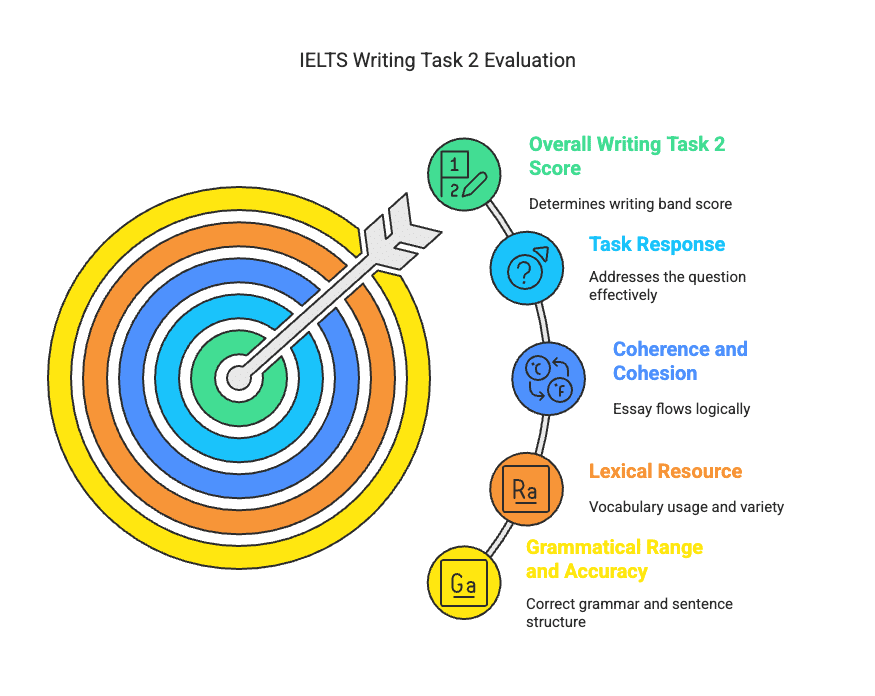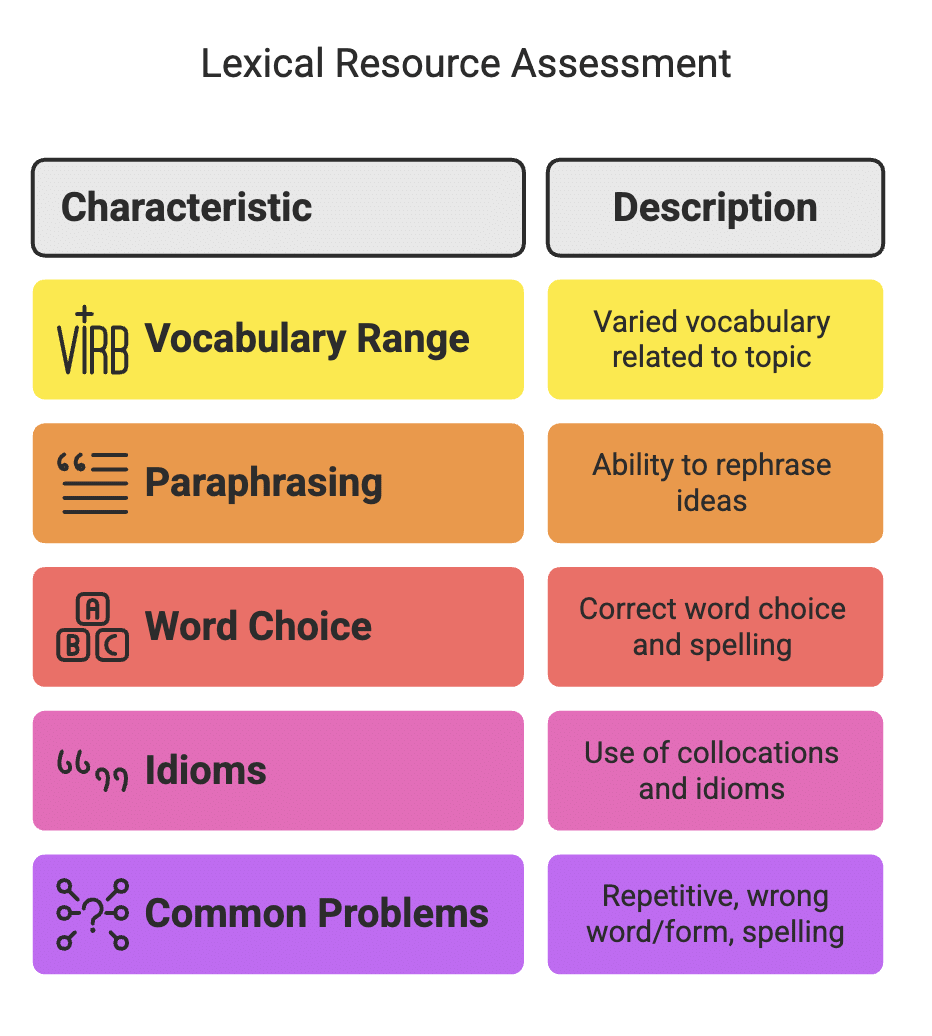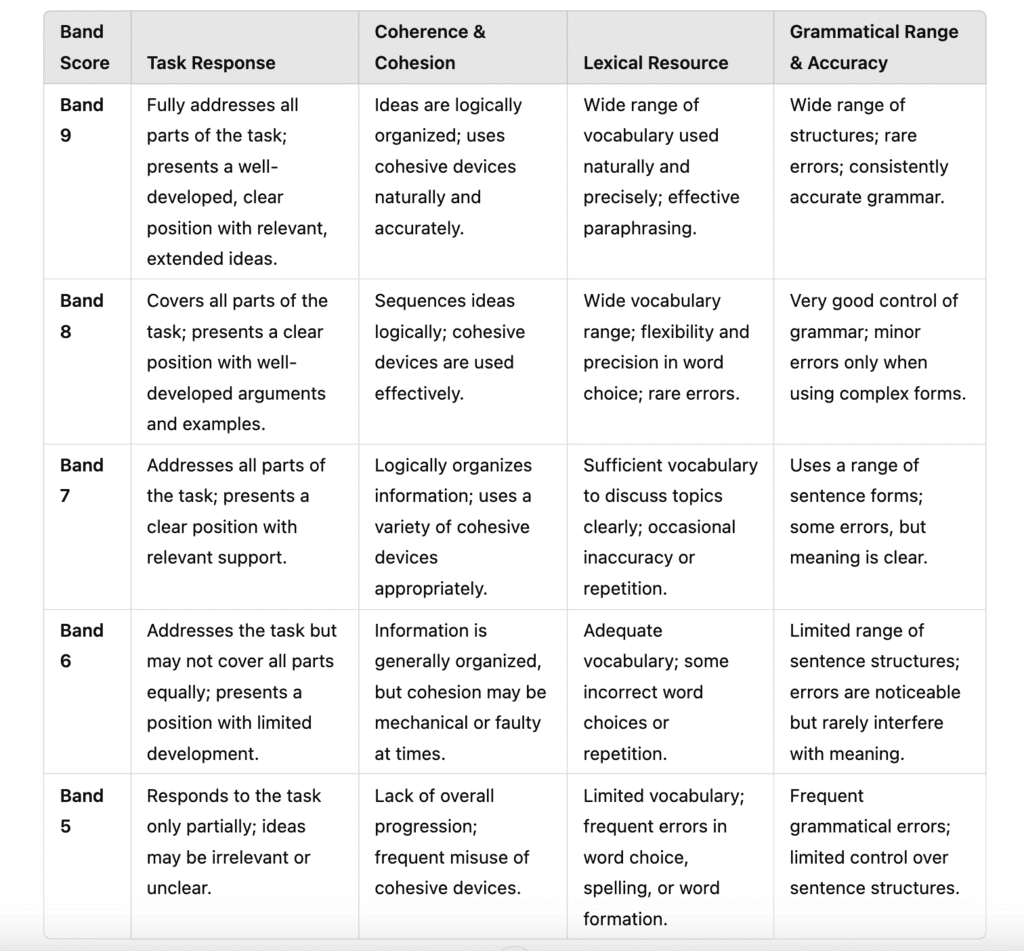How IELTS Essay Writing is Scored | Writing for Academic IELTS PDF Download
- The IELTS Writing Task 2 requires you to write an essay of at least 250 words in response to a question or argument.
- This task is worth twice as much as Task 1 and is crucial in determining your overall writing band score.
- Understanding how your essay is scored can help you focus on the right areas and significantly improve your performance.
- Examiners evaluate your essay based on four criteria, each worth 25% of the total Writing Task 2 score.
- Let's learn more.

1. Task Response (25%)
This criterion assesses how well you address the question and whether your ideas are fully developed and supported.
What the examiner looks for:
Did you answer all parts of the question?
Are your ideas relevant to the task?
Did you develop your arguments clearly, using examples, explanations, and evidence?
Is your essay at least 250 words long?
Common problems:
Going off-topic
Giving general or underdeveloped answers
Writing fewer than 250 words
2. Coherence and Cohesion (25%)
This assesses how well-organised and logically structured your essay is, and how smoothly your ideas flow from one to another.
What the examiner looks for:
Clear paragraphing (usually 4–5 paragraphs)
Use of linking words and phrases (however, therefore, in contrast, etc.)
Logical progression of ideas
Referencing and substitution to avoid repetition (e.g., using “this” or “such”)
Common problems:
Writing one long paragraph or too many short ones
Poor use of linking devices
Sudden jumps between ideas
3. Lexical Resource (25%)
This measures the range, accuracy, and appropriateness of your vocabulary.
What the examiner looks for:
Use of a varied vocabulary related to the topic
Ability to paraphrase the question and ideas
Correct word choice and spelling
Use of collocations and idiomatic expressions (when appropriate)
Common problems:
Repetitive or basic vocabulary
Using the wrong word or form
Incorrect spelling

4. Grammatical Range and Accuracy (25%)
This refers to the variety and correctness of your sentence structures and grammar.
What the examiner looks for:
A mix of simple, compound, and complex sentences
Accurate use of verb tenses, articles, prepositions, punctuation, etc.
Few or no grammatical errors
Common problems:
Repeated grammatical mistakes (e.g., subject-verb agreement)
Limited range of sentence types
Incorrect use of tenses or punctuation
How are Band Scores Calculated?
Each criterion is scored individually on a Band scale from 0 to 9. These four scores are then averaged to get your final band for Task 2.
For example:

Your final Writing band score is calculated by combining Task 1 and Task 2, with Task 2 weighted more heavily.
IELTS Writing Task 2 – Band Descriptors

To achieve a Band 7 or higher, you must:
Answer the question completely, with clear and developed arguments.
Organise your ideas logically and use a variety of linking devices.
Use a wide range of vocabulary with correct usage and limited repetition.
Control grammar and show variety in your sentence structures.
Tips to Maximise Your Score
Read the question carefully and answer all parts
Plan your essay before you start writing
Use topic-specific vocabulary and try to paraphrase
Make sure your paragraphs are clear and focused
Vary your sentence structures and check your grammar
Practice under timed conditions (40 minutes for Task 2)
The IELTS essay is not just about what you write—it's about how you write it. Mastering these four scoring criteria will help you write high-scoring essays that are clear, structured, and impactful.
|
30 videos|206 docs|17 tests
|
FAQs on How IELTS Essay Writing is Scored - Writing for Academic IELTS
| 1. How is the IELTS Writing Task 2 scored? |  |
| 2. What are the key components of Task Response in IELTS Writing Task 2? |  |
| 3. How can I improve coherence and cohesion in my IELTS essay? |  |
| 4. What vocabulary should I use to maximize my Lexical Resource score? |  |
| 5. What tips can help me prepare for IELTS Writing Task 2 effectively? |  |
















